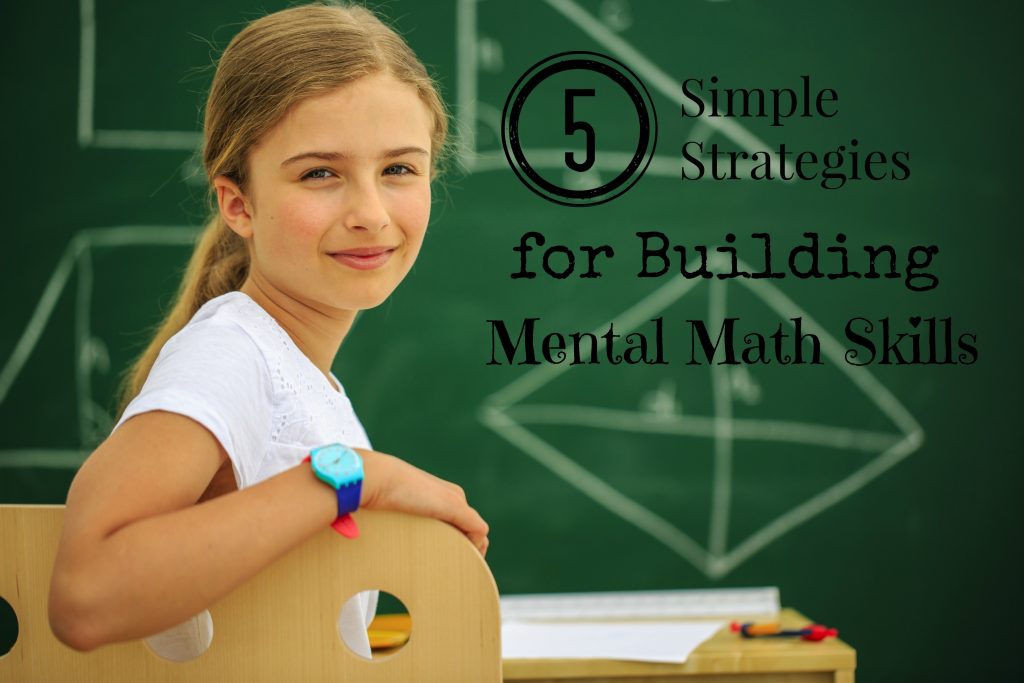5 Strategies for Building Mental Math Skills
As a homeschool graduate, my weakest subject growing up was mental math skills. I never had to race to beat the clock or other students. Most lessons took me an hour or more to complete. And it took me several years to memorize the times table and basic addition and subtraction facts.

When I got to college, I felt my deficiency in math held me back a bit. When I started to homeschool, I wanted to make sure that my children have their basic mental math skills down in order to avoid the same struggles I had.
Not everyone feels that mental math is necessary, which is completely fine (and one of the awesome things about homeschooling!), but if you do want to boost your kids’ mental math skills, you may find some of our strategies helpful:
Practice, Practice, Practice
The most effective thing we have found for learning mental math is practice. My eldest has ADHD, which usually means that she needs several repetitions of something before it finally sticks. We practice some form of mental math almost every day through worksheets, lace-ups, math games, flash cards, or simply doing some of our regular math problems mentally rather than writing them down.
Verbal Math
I cannot say enough good things about Verbal Math. We were given a copy to review over a year ago, and it remains my favorite math supplement of all time. Everything is mental, which is not only good for helping children learn mental math but it is also great for wiggly kids like my daughters who don’t like putting pen to paper. Verbal math gives shortcuts for completing mental math faster, which I’ve found helpful even as an adult!
Worksheets
A few times a week we drill math facts with worksheets. It’s not glamorous, but it gets the job done.
Fun Math Drills
When we can’t stand worksheets anymore, we try practicing fun math drills. One of our favorite ways to practice math is through mental math hopscotch. In this game, math problems are written down on a hopscotch board, and the child solves the problems as she jumps from square to square. You can do this for math problems all the way up to square roots, factors, and multi-step math problems. It doesn’t have to just be simple times tables or addition facts.
Shooting the correct answer for a math problem with a Nerf gun is also a popular game here.
Math On-the-Go
One of the ways I like to encourage mental math is when we are out and about as part of day-to-day activities. Most adults have to engage in a certain amount of mental math every day, so I just bring the kids into it. It’s easy to talk about probability, percents, decimals, multiplication, addition, subtraction, and even simple geometry while on-the-go. Almost anything can be turned into a mental math game.
For example, if you are waiting at a red light, you could ask your youngest children to identify how many red cars are visible. Older children could determine the percent or fraction of red cars. High schoolers could determine the probability that another red car would drive by before the light turned green.
For our family, building mental math skills is one way we strengthen our day-to-day math abilities.
What are your favorite ways to practice and improve mental math skills?






